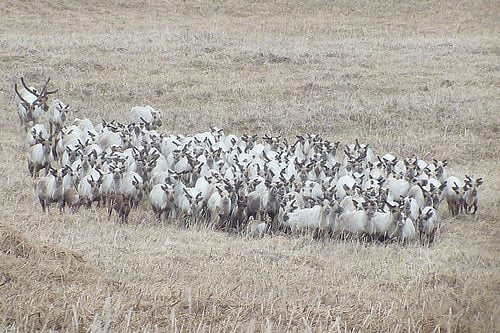

Environment
Animals avoid power cables because of invisible UV light
New research has revealed that animals tend to avoid high voltage power lines because of ultraviolet (UV) flashes that humans cannot see.
Scientists had already noted that animals prefer not to stay close to power cables, but have not been able to explain the reason behind this behaviour until now.
A study by researchers from the UK and Norway has suggested that UV flashes that generate when a charge is released into the air could be the cause.
Prof Glen Jeffery from University College London (UCL) said, “Animals avoid manmade structures and, in the case of high voltage power lines, this can be by several kilometres. This is perplexing because the suspended cables are neither a physical barrier nor are associated with human activity.
“New information about animal vision along with the characteristics of power lines provides strong evidence that the avoidance may be linked with animals’ ability to detect ultraviolet flashing on power lines that humans cannot see and which they find frightening.”
Humans cannot see flashes but animals can, and scientists have said that this can become stressful for them, as they can face problems in migrating and searching food. Sensitivity to UV flashes was first discovered in reindeers and later found in other animals.
“It has always been assumed that power lines – masts and the cables strung between them – were passive structures standing immobile in the terrain, and therefore inoffensive for animals”, said Dr Nicholas Tyler, one of the authors.
“As a result of this work, we now consider them as chains of flashing light stretching across the tundra in the winter darkness, and that’s why the animals find them so offensive.”
Further reading:
Leading wildlife and countryside groups call for frack-free zones
Common UK butterflies ‘thrived’ after warm summer in 2013
Biodiversity in UK overseas territories face ‘immediate and significant threats’
Study reveals decline of 16 bird species in the UK
‘FTSE index’ of threatened wildlife charts 60% decline since 1970


 Environment11 months ago
Environment11 months agoAre Polymer Banknotes: an Eco-Friendly Trend or a Groundswell?

 Features10 months ago
Features10 months agoEco-Friendly Cryptocurrencies: Sustainable Investment Choices

 Features12 months ago
Features12 months agoEco-Friendly Crypto Traders Must Find the Right Exchange

 Energy10 months ago
Energy10 months agoThe Growing Role of Solar Panels in Ireland’s Energy Future





























